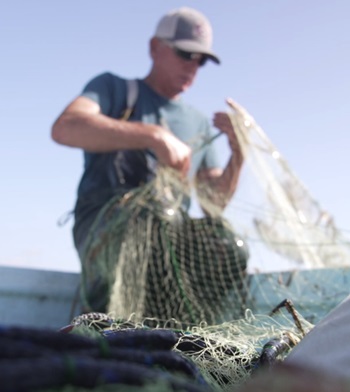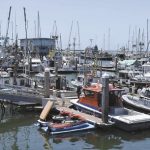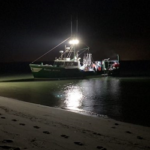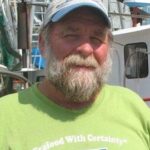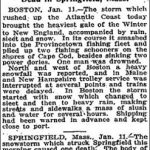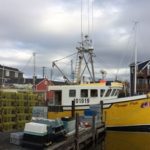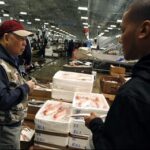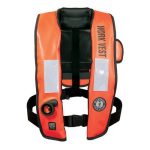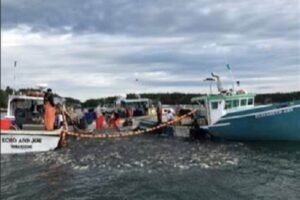Tag Archives: Southwest Florida
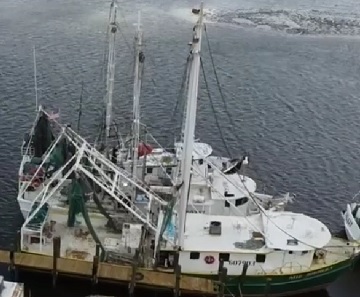
Southwest Florida’s shrimping industry struggles to stay afloat after hurricane devastation
Erickson & Jensen Seafood now have five of their shrimp boats back in the water, but their operations are far from normal since Hurricane Ian. “We had a nice ongoing business and we were very secure,” Grant Erickson said referring to his 75-year-old business. “Been doing this for a long, long time. And then all of a sudden in a 12-hour period, the storm just took us completely out of what we were doing.” Before Hurricane Ian, Erickson and Jensen had 11 ships bringing in tons of shrimp. From rebuilding the docks and their buildings, it’s been difficult to find the money. Video, >click to read< 13:27
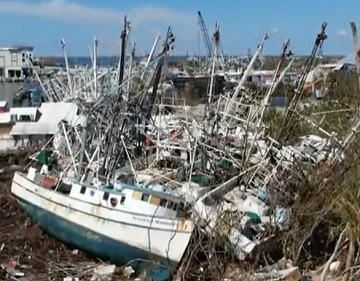
Fishing industry in Lee County ‘wiped out’ by Hurricane Ian
Among the wreckage, a small lime-green building, the Island Seafood Market, is somehow still standing. Owner Casey Streeter has had to tear out everything that was once inside. But the biggest hit was to what’s behind the shop. Streeter said all of their grouper boats were damaged by Ian, and even worse, they lost their docks and ice house to the hurricane. “I couldn’t believe it,” Jesse Clapham recalled seeing the damage for the first time. “It blew my mind.” Clapham is the fleet manager at Erickson and Jensen Seafood company. He’s worked on shrimp boats for 35 years and he’s dealt with hurricanes before – but nothing like this. Video, >click to read< 10:21
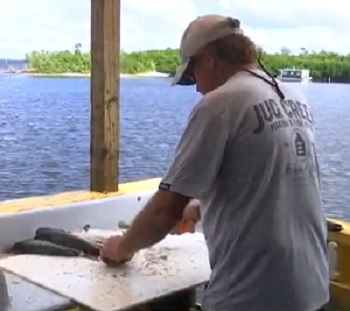
Fishermen want to uplift Mullet Run Season
Steve Johnston and his wife bought a fish house from the original owners in 2019 and are hoping to keep the history alive at Jug Creek. “We share the same passion as them, they were generational fisherman that developed Cayo Costa and this end of the island. So, it was real important for them to keep it the way it is,” said Johnston. Mullet fish are their specialty. “Last year we moved 300,000 this year we’re hoping 1 million or more this year and we didn’t have enough fishermen,” Johnston said. >video, click to read< 14:37
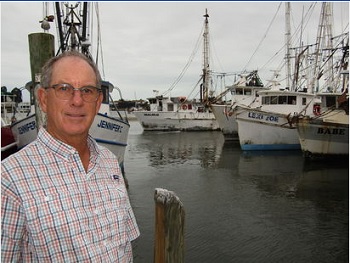
In search of aid: Congress pushing for help to local fishing industry battered by Coronavirus
In Southwest Florida, perhaps no other industry makes its mark so directly on the culture and day-to-day life of its tourism business as the fishermen who supply the seafood to local restaurants. With most of the major restaurants that serve seafood to diners closed since last month (except for those serving takeout) in response to the coronavirus, the fishing industry has taken a major hit locally.,, Erickson said the economic downturn caused by the coronavirus pandemic and subsequent shutdown measures have “hurt our market with all of these restaurants closed down because so much seafood is eaten at restaurants.” >click to read< 08:17
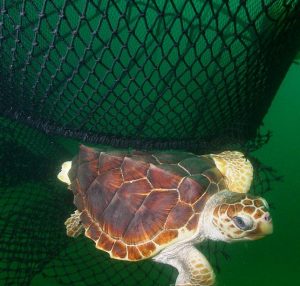
Nearly 300 Sea Turtles Dead as Red Tide Plagues Southwest Florida
Hundreds of sea turtles have washed up dead along the southwest Florida coast as an ongoing red tide event persists in the waters. The Florida Fish and Wildlife Conservation Commission has logged 287 sea turtle deaths since the virulent algal bloom started in October, the Associated Press reported. That figure is twice the average number of turtle deaths in those waters each year, Allen Foley of the commission’s Fish and Wildlife Research Institute told the AP on Thursday. Foley explained that the turtles get sick and die when their food gets contaminated by toxic bloom. >click to read<19:09
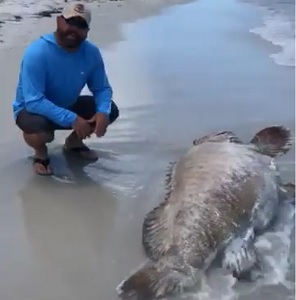
Florida, they’re killing it, one flush at a time
Once again, Florida’s fisheries are suffering from the legacy of long-time mismanagement of Florida’s water resources. Southwest Florida is plagued by an unprecedented red tide that is causing unprecedented kills of gamefish. Reports from those on the water estimate that tens of thousands of snook are dead – all of them adults in the peak of spawning season. Reports are also of many dead breeding-size redfish. And tarpon, which usually seem to avoid red tide, are also now being reported dead. The ongoing red tide is a sign of the ‘new normal’ in Southwest Florida because too many nutrients are entering Florida’s estuaries and coasts due to water mismanagement. Here are the facts: >click to read<10:30
‘This is catastrophic’: Charter captain speaks out about red tide impact in SWFL – >click to read<
One of the worst stone crab seasons on record in Southwest Florida – video







